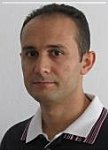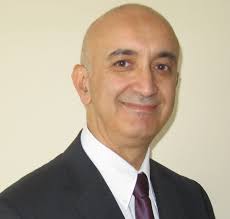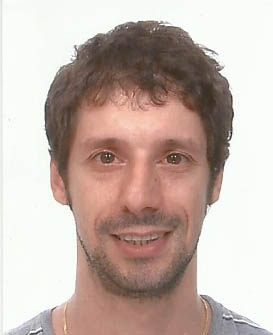
|
|
|
IDT 2016 Plenary and keynote speakers include:
Analysis of Design Parameters in Safety-Critical Systems Download the presentation AbstractRecently, Safety-critical computers are extensively used in many civil domains like transportation including railways, avionics and automotive. We noticed that in design of some previous works, some critical safety design parameters like failure diagnostic coverage (DC) or common cause failure (CCF) ratio have not been seriously taken into account. Moreover, in some cases safety has not been compared with standard safety levels (IEC-61508: SIL1-SIL4) or even have not met them. Most often, it is not very clear that which part of the system is the Achilles' heel and how design can be improved to reach standard safety levels. Motivated by such design ambiguities, we aim to study the effect of various design parameters on safety in some prevalent safety configurations: 1oo2 and 2oo3. 1oo1 is also used as a reference. By employing Markov modeling, sensitivity of safety to each of the following critical design parameters is analyzed: failure rate of processing element, failure diagnostic coverage, common cause failures and repair rates. This study gives a deeper sense regarding the influence of variation in design parameters over safety. Consequently, to meet appropriate safety integrity level, instead of improving some system parts blindly, it will be possible to make an informed decision on more relevant parameters. Biography
Embedded Systems Design for Critical Applications Abstract
While the search for high-performance will continue
to be one of the main driving factors in computing
system design, embedded systems have an increasing
need in optimizing extra-functional properties (EFP)
in terms of energy efficiency, predictability,
reliability and adaptability. These EFP are vital
for safety critical applications, including hard
real-time systems. It was reported that EFP
constraints are becoming the main barriers in the
exploitation of technological advances. If these EFP
are not taken into account in the design of
safety-critical systems, failures may occur which
may result in loss of life and damage.
Transportation systems (automotive, railway or
avionics), medical devices or nuclear systems are
examples of critical systems where designer needs to
explore different tradeoffs in terms of performance,
reliability, complexity and energy consumption.
Biography
Microelectronic Systems for Improved Quality of Life AbstractMicroelectronic revolutions come in waves that are driven by necessity. Currently, the aging population is creating a need for various kinds of electronic systems to improve their quality of life. These include the restoration of lost functionality via electronic implants, better health screening technology and non-invasive monitoring in the home environment. In this talk I will present work that has been done towards addressing these needs, whether it be through the development of new required building blocks or through the development of more complex systems that combine custom built hardware and software. In particular the talk covers work done towards developing a vestibular implant for balance restoration, a single chip low-power imager for a bionic eye, a cancer screening capsule for detecting early-stage carcinomas in the small intestine and a bio-inspired acoustic scene analysis system. Biography
Prof. Georgiou is a member of the IEEE Circuits and
Systems Society, is the Chair of the IEEE Biomedical
and Life Science Circuits and Systems (BioCAS)
Technical Committee, as well as a member of the IEEE
Circuits and Systems Society Analog Signal
Processing Technical Committee. He served as the
General Chair of the 2010 IEEE Biomedical Circuits
and Systems Conference and is the Action Chair of
the EU COST Action ICT-1401 on “Memristors-Devices,
Models, Circuits, Systems and Applications - MemoCIS”.
Prof. Georgiou has been selected as an IEEE Circuits
and Systems Society Distinguished Lecturer for
2016-2017. He is also is an Associate Editor of the
IEEE Transactions on Biomedical Circuits and Systems
and Associate Editor of the Frontiers in
Neuromorphic Engineering Journal. He is a recipient
of a best paper award at the IEEE ISCAS 2011
International Symposium and at the IEEE BioDevices
2008 Conference. In 2016 he received the
2015 ONE Award from the President of the
Republic of Cyprus for his research accomplishments.
Virtual platforms: from consumer electronics to critical embedded systems Download the presentationBiography
Embedded platforms for next-generation autonomous driving systems Download the presentation
The advent of commercial-of-the-shelf (COTS) heterogeneous many-core platforms is opening up a series of opportunities in the embedded computing market. Integrating multiple computing elements running at smaller frequencies allows obtaining impressive performance capabilities at a reduced power consumption. These platforms can be successfully adopted to build the next-generation of self-driving vehicles, where Advanced Driver Assistance Systems (ADAS) need to process unprecedently higher computing workloads at low power budgets. Unfortunately, the current methodologies for providing real-time guarantees are uneffective when applied to the complex architectures of modern many-cores. Having impressive average performances with no guaranteed bounds on the response times of the critical computing activities is of little if no use to these applications. Project HERCULES will provide the required technological infrastructure to obtain an order-of-magnitude improvement in the cost and power consumption of next generation automotive systems. This talk presents the integrated software framework of the project, which allows achieving predictable performance on top of cutting-edge heterogeneous COTS platforms. The proposed software stack will let both real-time and non real-time application coexist on next-generation, power-efficient embedded platform, with preserved timing guarantees. Biography
|
||||||||||
|
|
|
Important Dates
Regular Paper
Submission
|
 |
|
 |
 |
 |
 |
 |
 |
 |
 |
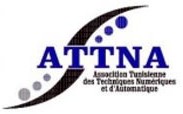 |
 |

|

|
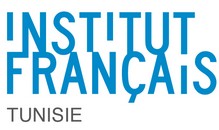 |

|
